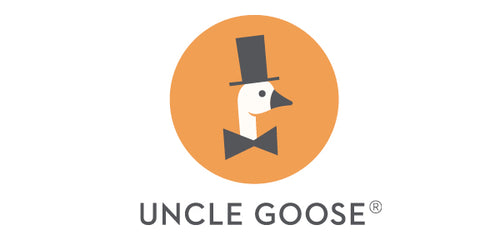
How Parents Can Support Language Fluency
A few years ago, we got a funny call from an upset customer. It seemed that she bought a set of our Uncle Goose Greek Blocks for her toddler. He enjoyed playing with them and building things, but there was a problem.
He’d been playing with the Greek Blocks for two whole months, and he wasn’t speaking any Greek yet. Not a single word.
UNCLE GOOSE: Do you speak Greek around the house?
CUSTOMER: No.
UNCLE GOOSE: Do you listen to any Greek language podcasts or TV shows?
CUSTOMER: No.
UNCLE GOOSE: Well, what exposure does your son have to Greek language and culture?
CUSTOMER: We bought him your blocks.
As it turned out, the family wanted to take a vacation to Greece in a few years. They read somewhere that children learn languages more quickly than adults. So they bought their English-speaking child Greek blocks.
It’s an absurd notion on two levels. First, you can't expect a five-year-old to act as your guide and translator in your own country, much less a foreign one.
Second, the expectation that a child is somehow going to learn a language simply by playing alone with 24 blocks is unreasonable. Language competency comes through lots of practice, interaction, feedback, and exposure.
If you want a child to develop language fluency, you're going to have to get way more involved! You're going to have to put in time and effort.
As children learn to speak, they hear or see it spoken all around them. They get to interact with others who speak or sign the same language. This is how many children build language skills.
If you want children to develop language fluency:
1. Make sure children hear and see that language frequently. Speaking it around the house is great. So is watching TV programs, reading stories aloud, and listening to age-appropriate books and podcasts.
2. Give children plenty of opportunities to speak, sign, and write the language. Play games with letters and words. Give positive reinforcement for communication effort and success.
3. Consider taking classes. This gives students a chance to learn and practice. It also gives them opportunities to play and talk with their peers. They can also receive feedback from teachers.
Interaction and feedback: that’s where the language-learning magic lies. After all, learning doesn’t happen in a vacuum. It requires a lot of inputs.
Blocks are but one small but powerful tool that can aid language fluency. Your Uncle Goose makes blocks in 27 different languages.


